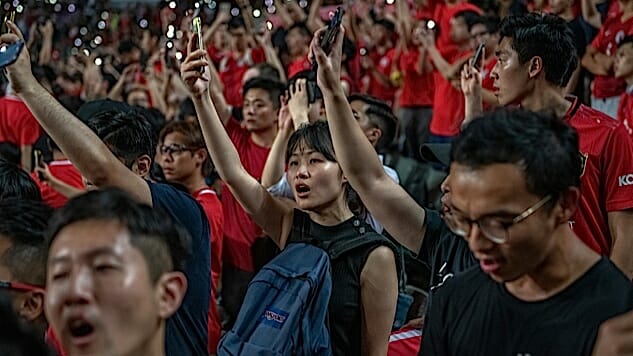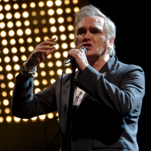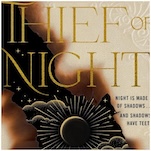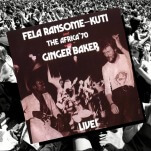The Hong Kong Protests, Explained
There is no love lost between Hong Kong and China
Photo by Carl Court/Getty
Can you explain the Hong Kong protests in a single sentence?
In March, China wanted Hong Kong to accept an extradition law, Hong Kong disagreed, the law was rolled back, but the protests have grown to encompass deep grievances Hong Kong holds toward mainland China.
Can you expand on that a little? What’s the background?
China essentially told the Hong Kong government to pass an extradition bill. The law meant that Hong Kong citizens would fall under Chinese law in certain circumstances. This breaks the special arrangement China and Hong Kong have. Hong Kong is wary of compromising their sovereignty. Since the Extradition Bill, there have been massive protests and widespread civil unrest. This has gone on for the last five months. Numbers-wise, we’re talking about a huge segment of the Hong Kong population.
Protest-wise, things really didn’t kick off until June, when the police escalated violence. On August 5, 1.7 million people out of a city of 7.4 million attended an anti-police brutality rally. One in seven people, more or less.
What’s the immediate background to all of this? What’s the larger story?
China and the city of Hong Kong are fighting over Hong Kong’s future. The phrase “economic powerhouse” is thrown around a lot, but that’s what Hong Kong is to China. Hong Kong was a British colony for a century and a half. It got handed back to China in 1997, and since then there’s been constant push-and-pull between the mainland and the city over questions of power and sovereignty.
The city’s freedom is limited. Hong Kong may not run its own military. Hong Kong may not have its own foreign policy. The President of China is the chief of state, but Hong Kong has its own Chief Executive, who is accountable directly to Beijing. In 2014, China redesigned how Hong Kong elected its Chief Executive. Hong Kongers pushed back in what were called the Umbrella Protests. They made the news, but didn’t do much for the city; Beijing got its way.
Times have changed. The 2019 protests are significantly bigger, and in the long run, probably more consequential. There’s more impetus for change, more social media, and much more for both China and Hong Kong to lose if this goes badly.
That sounds intense. This all started over a bill about extraditing fugitives?
There are other complaints that built up around the bill, like flood-waters rising up behind a river dam. The bill is technically dead now, but it doesn’t matter. The bill was the fuse. The Hong Kong chief executive and the central government in Beijing have catastrophically misread the situation. There have been widespread reports of police brutality. It’s not pretty.
International governments are keeping a close watch on the situation. If it looks like there will be a repeat of the government crackdowns of 1989, the reprisals from the international community will not be pretty. Those pushbacks will be nothing next to the financial reaction, which I’ll touch on later.
What do the protesters want?
This was a moderator post on the Hong Kong Reddit, titled “The Five Demands of the Protest.”
Full withdrawal of the extradition bill
A commission of inquiry into alleged police brutality
Retracting the classification of protesters as “rioters”
Amnesty for arrested protesters
Dual universal suffrage, meaning for both the Legislative Council and the Chief Executive
NOT ONE LESS.
According to Google Translate, the translated characters from the end of the post (which have been removed from the quote above for formatting purposes) literally means “Recovering the Hong Kong era revolution / Five major demands are indispensable.” The crowds standing against the central government seem to be products of Hong Kong prosperity. The bulk of them are overwhelmingly educated, young, and middle class. A majority of them are under 30, although nearly a fifth are middle-aged. Three-quarters of the protesters have some post-high-school education.
Here’s another post from the same Reddit thread:
We HongKongers have already sacrificed seven life, two lost their eyesight permanently, about 1200 arrested which the youngest arrested is only twelve years old. And countless people injured by gunshot, baton, poison gas. It is impossible to take this as a victory. Not until we get all five demands satisfied, we will continue our revolution. Give us Freedom or give us Death.
Another Hong Konger held an Ask Me Anything, or “AMA,” for users. When asked what he wanted, user /u/ephilorex replied with a multiple-choice answer:
Honestly, I have no idea how this will turn out. I think that there are a few options.
1. Hong Kongers succeed and we meet the five demands. The five demands are: full withdrawal of the extradition bill, the Chief Executive must resign, the government must not classify the protests as “riots”, there must be a full independent investigation into the police, and everyone arrested or detained because of participation of the protests must be unconditionally be freed.
2. Police win and protesters just start getting into smaller numbers until no protesters are left.
3. China sends in military. (highly unlikely in my opinion.)
A portion of protesters are looking for independence from China, some people just want the five demands and keep the one country two systems policy.
Since China is heavily restricted on their exposure to media, China blasts them with propaganda to make protesters seem bad. There isn’t much support because of China, but in the mainland I’m sure people really know whats happening.
I keep reading that these protests are different. How so?
Let’s put it this way. How online are the protesters? Very. The Hong Kong protests have a song, which is swiftly becoming an unofficial national anthem of Hong Kong. “Glory to Hong Kong” was released on YouTube a whole twelve days ago, by an artist named Thomas dgx yhl, and the protesters have been singing it in shopping malls across the city. A Hong Kong orchestra played it in riot gear:
This Philharmonic Orchestra version of the “Glory to Hong Kong” is really madness, the arrangement and the visuals. From dressing in Full Gear to play the music, to the teargas scenes, to the youtube a/c name “Black Blorchestra”. PERFECT!
I LOVE HKers!https://t.co/xOfcCwSwt1pic.twitter.com/2j2D6Khgoj
— LO Kin-hei ??? (@lokinhei) September 11, 2019
Can you put this in term of economics? Can we speak in numbers?
If this is the part where your eyes glaze over, I promise, what follows is important to the story.
Start with $1.1 trillion.
That’s the amount of assets Chinese banks hold in Hong Kong, which is about nine percent of Chinese GDP. The city is the “largest trade partner in services” with China, according to Reuters, with more than a fifth of the Chinese market share. China and Hong Kong trade half a trillion dollars to each other. Every year. Almost nothing is made in Hong Kong; ninety percent of what the City does is a service economy.
The per-capita GDP of Hong Kong is $48K. In China, it’s $9.7K. There’s one divide between the mainland and the City.
What all of those totals end up saying is that Hong Kong is terrifically important to Beijing and that’s why this entire process has been so drawn-out and weird. Grasp that, and you grasp the story.
When China took Hong Kong back in 1997, Hong Kong’s share of the Chinese economy was 18.4 percent. These days it’s 2.7 percent. Any economic graph comparing Hong Kong to China will show you how China’s economy took off between 1995 and 2000 and never stopped growing. After 2005, the sky was the limit for Beijing. But for all of that, Hong Kong still matters.
Why? Because two point seven percent is still a lot, when you consider Hong Kong’s population is just seven million people out of a billion plus. Even in this age of direct interconnectedness between the West and China, Hong Kong is still important. In both a literal and figurative sense, Hong Kong is China’s principal trading house with the rest of the world. China has always used Hong Kong to bring in international money, and foreign companies prefer to use Hong Kong as their pathway into China. Reuters again:
The bulk of foreign direct investment (FDI) in China continues to be channeled through the city. Most of China’s biggest firms, from state-owned Industrial and Commercial Bank of China (1398.HK), to private firms like Tencent Holdings (0700.HK), have listed in Hong Kong, often as a springboard to global expansion. Last year, Chinese companies raised $64.2 billion globally – almost a third of the worldwide total – via initial public offerings (IPOs), but just $19.7 billion of that came from listings in Shanghai or Shenzhen, according to data from Refinitiv, compared with $35 billion in Hong Kong.
The favored status of Hong Kong depends on the independence—political, economic, and cultural—of Hong Kong from the mainland. That’s the “one country, two systems” idea again. With independence intact, Hong Kong can engage in the complicated business of modern capital markets. For example, when Hong Kong sends goods to America, it doesn’t have to pay the same tariffs as the rest of China. The West extends its full faith and credit to Hong Kong.
All of which is to say, intervention is possible but unlikely. Nobody, including Beijing, wants another Tiananmen Square. There are a lot more hubs of global capital in China then there used to be—there are so many growing Chinese cities—but none of them can hold a candle to Hong Kong. Not Shanghai, not Shenzhen, not Beijing, or any of the other metropolises. Hong Kong is stable, it’s well-regarded, and it feels safe to investors from the rest of the world.
The moment that the the military uses force, that role ends. All of the money from debt financing, equity, and every other crown jewel in Hong Kong’s economy will vanish overnight. And all of that money will fly off to Singapore, which will achieve its dream of beating Hong Kong at its own game.
What’s the future of Hong Kong?
There’s a theory that to bring about real change, you need 3.5 percent of the population in open, nonviolent revolt. If we go by the population numbers of Hong Kong, those conditions are currently being met.
But of course, this elides the basic issue, which is that China wants Hong Kong to play along, and Hong Kong doesn’t want to be anything but Hong Kong. The 70th anniversary of the People’s Republic of China is coming up on Oct. 1. Barring some breakthrough, the protests are likely to continue for another month. Which public gathering will receive more attention remains to be seen.







































